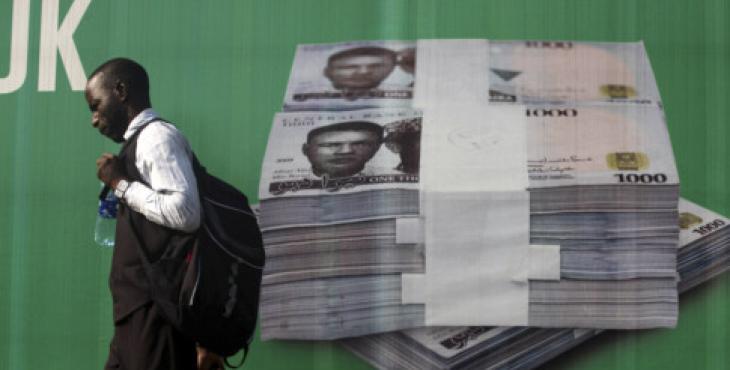Bank customers are shying away from making cash deposits into their domiciliary accounts three days after the Central Bank of Nigeria lifted the ban on foreign currency deposits, our correspondent has learnt.
The CBN had Monday said holders of ordinary domiciliary accounts were allowed to deposit foreign currencies into their accounts, a move that ended a six-month embargo on the banks from receiving cash deposits from the customers.
Bankers at some branches of Guaranty Trust Bank, First City Monument Bank and First Bank of Nigeria in Lagos told our correspondents on Thursday that customers had not been coming to make dollar deposits.
Industry analysts said the lack of certainty about whether customers could transfer or do transactions with the deposits was the major factor discouraging foreign currency deposits by customers, stating that the central bank needed to address that.
The CBN had on August 5, 2015 banned the payment of cash into domiciliary accounts in a bid to stop illicit financial flows in the Nigerian banking system.
A spokesperson of one of the banks, who pleaded anonymity, said, “The directive from the CBN was silent on whether customers can transfer the deposits, and I know there are concerns about that. Possibly, this is one of the things the Bankers’ Committee might want to discuss at its next meeting.
“I am as confused as the rest of the bank customers. I don’t really understand what the central bank is trying to do. A lot of the things they are saying we are not really clear about it. The banking industry is still very confused.”
The Head, Media and External Relations, FirstBank, Mr. Babatunde Lasaki, said, “People have been coming to deposit money into their domiciliary accounts in our bank.”
A currency strategist at Ecobank Nigeria, Mr. Kunle Ezun, said, “One would have thought that with that directive, there would be opportunity for business. But basically, I think it has a mooted effect on the banks because it doesn’t create any business; rather, it creates more burdens on the banks.
“When you deposit your dollar cash with the bank and the bank has no outlet for those dollar cash, then you create more problems for them because they will need to pay premium on those deposits. Meanwhile, those deposits are not being utilised. Today, the CBN is not allowing the banks to do wire transfers.”
The CBN needs to come back to the banks and perhaps provide a clearer view about how they will use the deposits, Ezun said.
“A lot of banks are not too excited about it (the dollar cash deposit) because it is not going to help their business. What it will only end up doing is that it will make the banks to just accumulate dollar cash in their vaults without any outlets for those dollar cash. So, at the end of the day, the banks are just keeping assets that are not earning any income for them,” he added.
The Head of Investment Research, Afrinvest West Africa Limited, Ayodeji Ebo, said, “It won’t be very effective because they also need to address the user end. What I mean by that is that people are not sure of the modality for withdrawal or usage. Most of the banks have not reversed the initial policy regarding the cap that has been placed on debit and credit cards as well as withdrawals.
“You can’t expect me to pay in $1,000 and you are telling me I can only use $300 in a day, or that I can’t use my card. So, we don’t feel that will be very effective because the CBN also needs to address the utilisation or the modality around the usage.”
Punch


 Naira4 weeks ago
Naira4 weeks ago
 Naira4 weeks ago
Naira4 weeks ago


 Naira4 weeks ago
Naira4 weeks ago




 Naira3 weeks ago
Naira3 weeks ago
 Commodities4 weeks ago
Commodities4 weeks ago


 News4 weeks ago
News4 weeks ago


 Banking Sector4 weeks ago
Banking Sector4 weeks ago
 Travel4 weeks ago
Travel4 weeks ago























